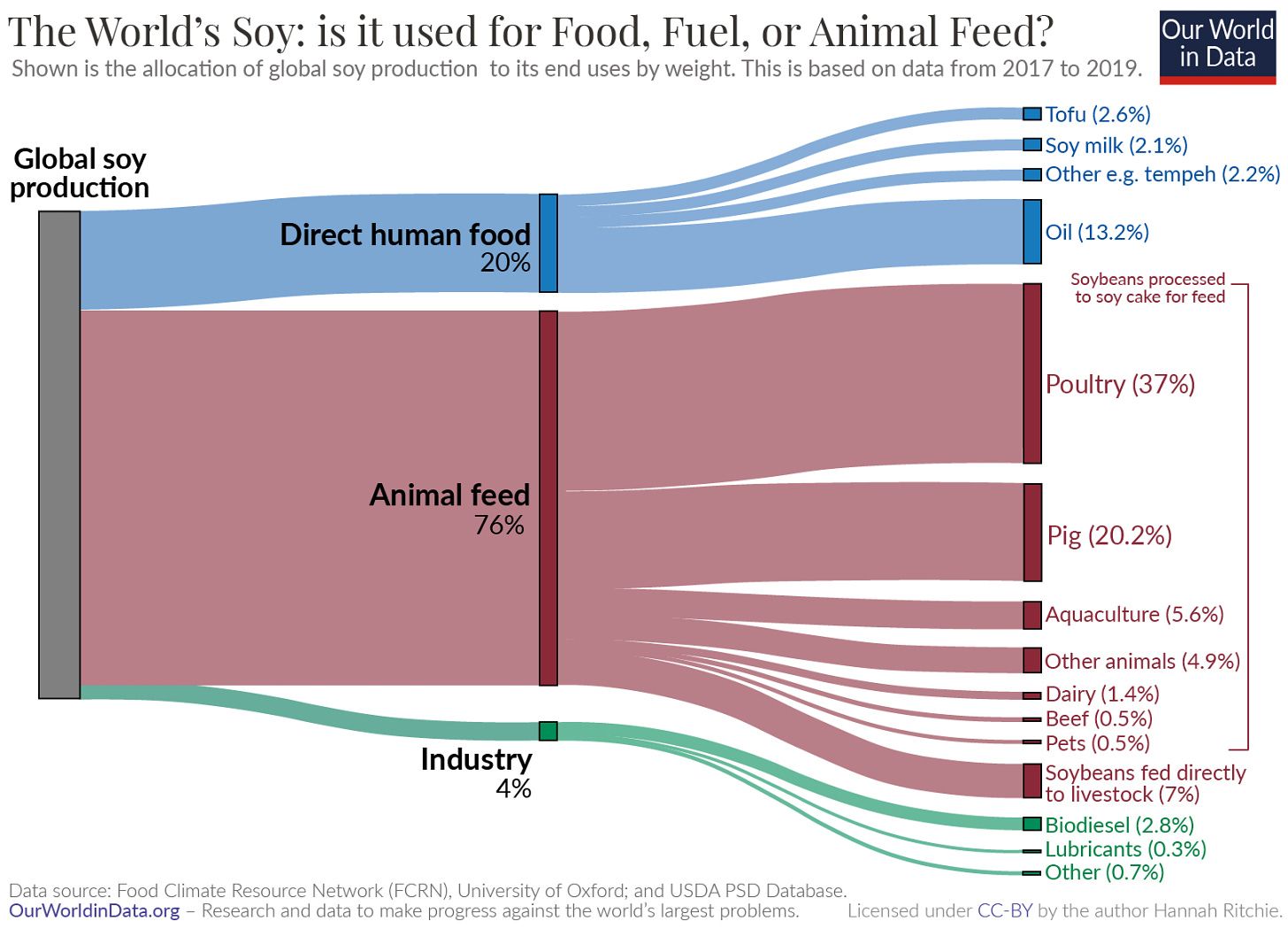“Vegans are rich and privileged tho.”
“Human issues are more important than veganism.”
“Why don’t you try to solve human injustices before you focus on animals?”
This is how I used to think and talk… Here, in condensed form, are the insights that have changed my mind. 👇
Besides animal suffering and other devastating effects, the livestock sector is a powerful driver of human social inequality.
Why? 4 Reasons.
1. Horrific working conditions
Most workers in the industry endure harsh and dangerous working conditions, causing high rates of lifelong injuries, substance abuse and addiction, anxiety issues, depression, and PTSD.
Working conditions in the animal industry are regularly described as "modern slavery".
“The meat industry is hiding a dark secret, as workers at 'America's worst job' wade through seas of blood, guts, and grease”
— Headline of a Business Insider article
The slaughterhouse employees put at risk to satisfy society’s taste for meat are overwhelmingly people of color and members of other disadvantaged minorities.
2. Public health disaster
The animal industry is the main and the only easily preventable cause of zoonotic diseases and of antibiotic resistance, which is projected to soon kill more people per year than all types of cancer combined — and will, of course, hit the most vulnerable in our society the hardest.
3. Fear and destruction
Animal agriculture is also by far the leading driver of deforestation on this planet and produces roughly as much carbon emissions as all forms of transportation combined — which, again, mostly hits the vulnerable, such as the many indigenous people displaced by rainforest destruction and the poor communities most exposed to the effects of climate change.
4. A major driver of world hunger
Finally — and it took me a long time to realize this — the livestock sector strongly contributes to world hunger!
This is because animals are an incredibly inefficient food source:
While roughly 24,000 people die from hunger and malnutrition every day, our society wastes massive amounts of grain, corn, soy, and fresh water to grow livestock — resources that could be directly consumed by humans.
It takes about 100 calories of grain to produce just 12 calories of chicken or 3 calories worth of beef.
— Brad Plumer (2014)
The world’s cattle alone consume a quantity of food equal to the caloric needs of 8.7 billion people (which is more than the current world population!) And while every third human suffers from water scarcity, the production of one pound of beef uses as much water as a 135 days’ worth of showers.
A shameful deflection of responsibility
It is blatantly unfair and irresponsible to claim that the rich consume fewer animal products compared to the rest of society. That would put the blame for the destructive effects of animal consumption on the world’s poor. And that is simply false:
The highest consumption rates of animal products are found in the world’s richest countries and social classes — which is well illustrated, for example, by the world map of excess meat consumption shown below. Or by a recent US poll, showing that the plant-based diet is more common among people earning less than 30,000$ while being rarest among high earners.

On average, a vegan life is cheaper
The cheapest foods are vegan. The fact that the plant-based diet has the potential to be more expensive than the average diet doesn’t mean anything, non-vegan diets can also be very costly. The most expensive vegan luxury items couldn’t hold a candle to the luxury meats out there.
Yes, many vegan products are currently being newly developed and are still somewhat more expensive than the corresponding products of animal origin.
Against this background, it is understandable that avoiding animal products is often perceived as a privilege for the wealthy.
But:
On the whole, this perception is wrong. The price differences mentioned above mainly relate to processed meat and dairy substitutes. On average, plant-based foods are significantly cheaper than animal products — even though the animal industry is heavily subsidized with tax payer money (for instance, nearly a fifth of the European Union’s budget goes on livestock farming).
A study by the University of Oxford, in which food prices from 150 countries were analyzed, has shown that switching to a plant-based diet can reduce food costs by up to 30%. The reason for this is that the production of plant-based foods consumes significantly fewer resources such as water, energy, and land.
Through increasing mass production, vegan meat and dairy substitutes will become significantly cheaper than animal products.
To accelerate this process, it is important to boost demand for plant-based products!
If you want to help support my work to inform the public and resist the animal industry in every way possible, please join as a free or paid subscriber below if you haven’t.
I’ll see you very soon
– Pala






Over a decade ago, I talked to someone online who was vegan. I was interested in going vegan myself but, among other misconceptions, I believe it was “expensive”. She told me that actually going vegan was cheaper - something I’ve discovered to be true for myself in my subsequent 11 years of veganism. The idea that it’s “for the privileged” is so misguided.